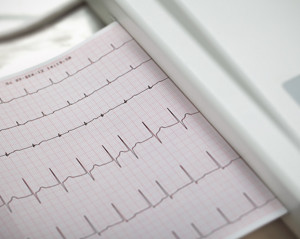- Could Your Grocery Store Meat Be Causing Recurring UTIs?
- Are You Making This Expensive Thermostat Error This Winter?
- Recognizing the Signs of Hypothyroidism
- 10 Strategies to Overcome Insomnia
- Could Artificial Sweeteners Be Aging the Brain Faster?
- Techniques for Soothing Your Nervous System
- Does the Water in Your House Smell Funny? Here’s Why
- Can a Daily Dose of Apple Cider Vinegar Actually Aid Weight Loss?
- 6 Health Beverages That Can Actually Spike Your Blood Sugar
- Treatment Options for Social Anxiety Disorder
Atrial Fibrillation and Memory

Atrial fibrillation is an irregular heartbeat that can lead to blood clots,stroke and even heart failure. An estimated 2-point-7 million Americans have it.Now, brand new research suggests some Afib patients may also be more likely to develop problems with thinking and memory.
The study included participants who were 65 and older with no history of atrial fibrillation or stroke at the start. They were followed for an average of seven years, and took an annual 100-question memory and thinking test.
After excluding people who had a stroke during the study… 5,150 participants were left to evaluate. 552, about 11 percent, developed atrial fibrillation.
The data showed that those with atrial fibrillation were more likely to have lower memory and thinking scores earlier in life than those with no history of the condition.
This suggests people with Afib may be more likely to develop dementia at younger ages.
The researchers are calling for further study to help determine why this decline happens and how to prevent any cognitive consequences for patients with atrial fibrillation.
I’m Dr. Cindy Haines of HealthDay TV with health information for healthier living.










